“Group livestream” (团播) is the latest development in livestream entertainment in China, and it has taken the sector by storm, both in terms of viewership and streamers. What is it, and is it the next stage of livestreaming?
Group livestream is, as the name suggests, a livestream featuring groups of people. However, in this context ‘groups’ is closer in meaning to idol groups, i.e. boy bands and girl groups. This type of livestream was born from the ashes of “low-quality” dance livestreams, but with “high quality”: streamers with stronger dancing skills, better choreography and higher production value. They don’t just dance either, as many participate in their own variety streams so viewers can get to know them better. There is also a range of genres, from traditional Chinese style to “erciyuan” ACGN or cosplayers. But they still monetise through the usual “tip” or “gift” systems during the stream.
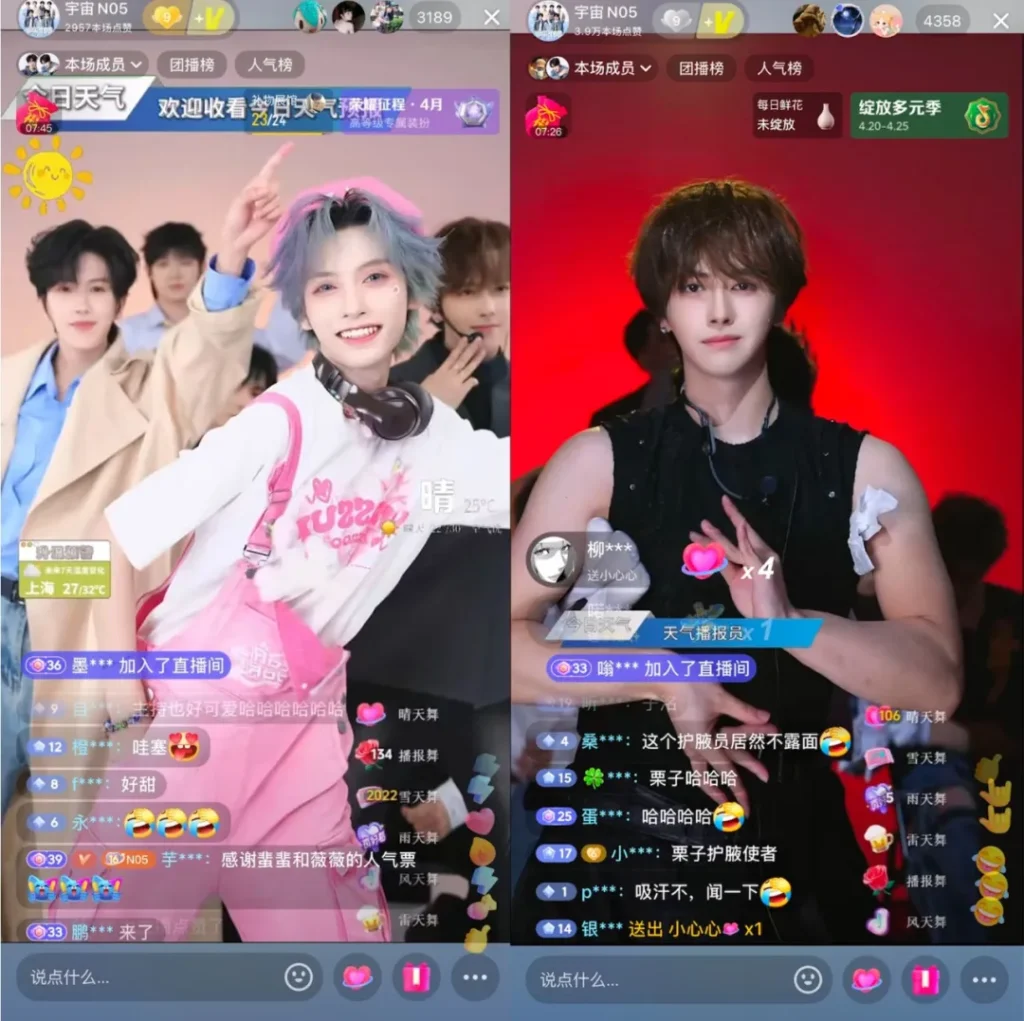
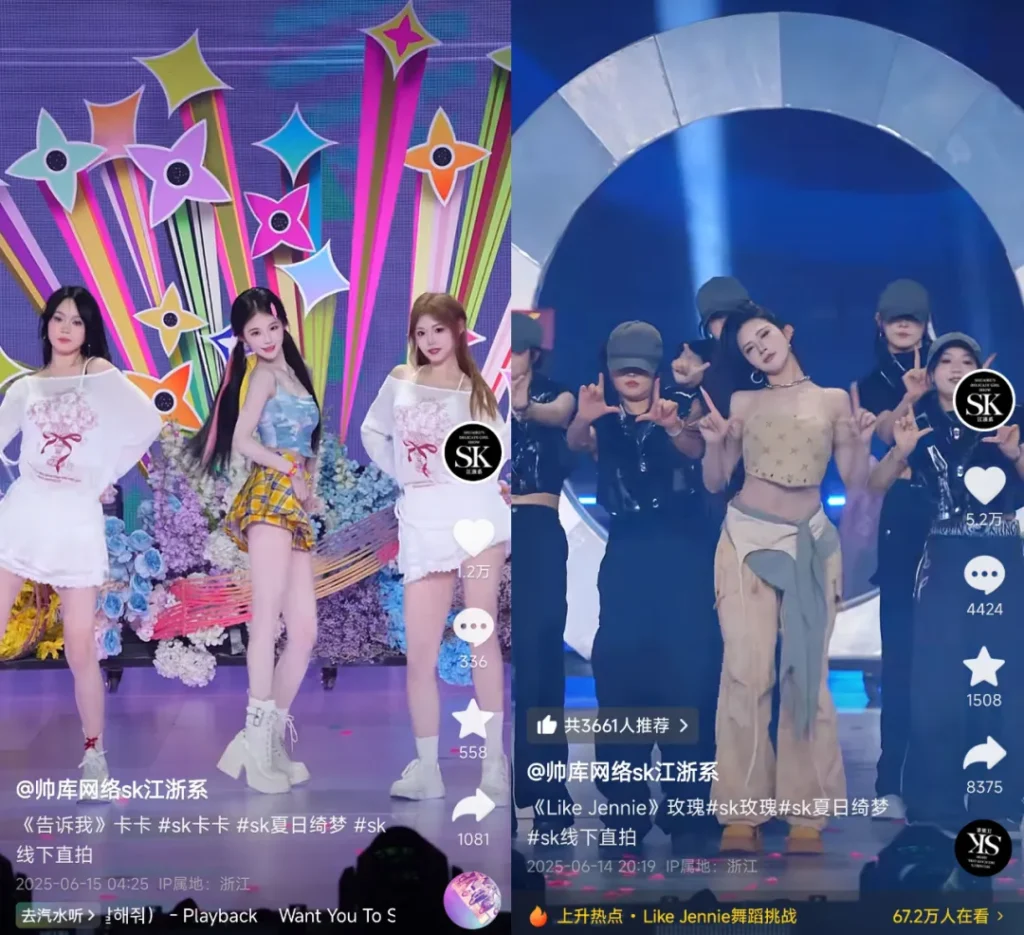
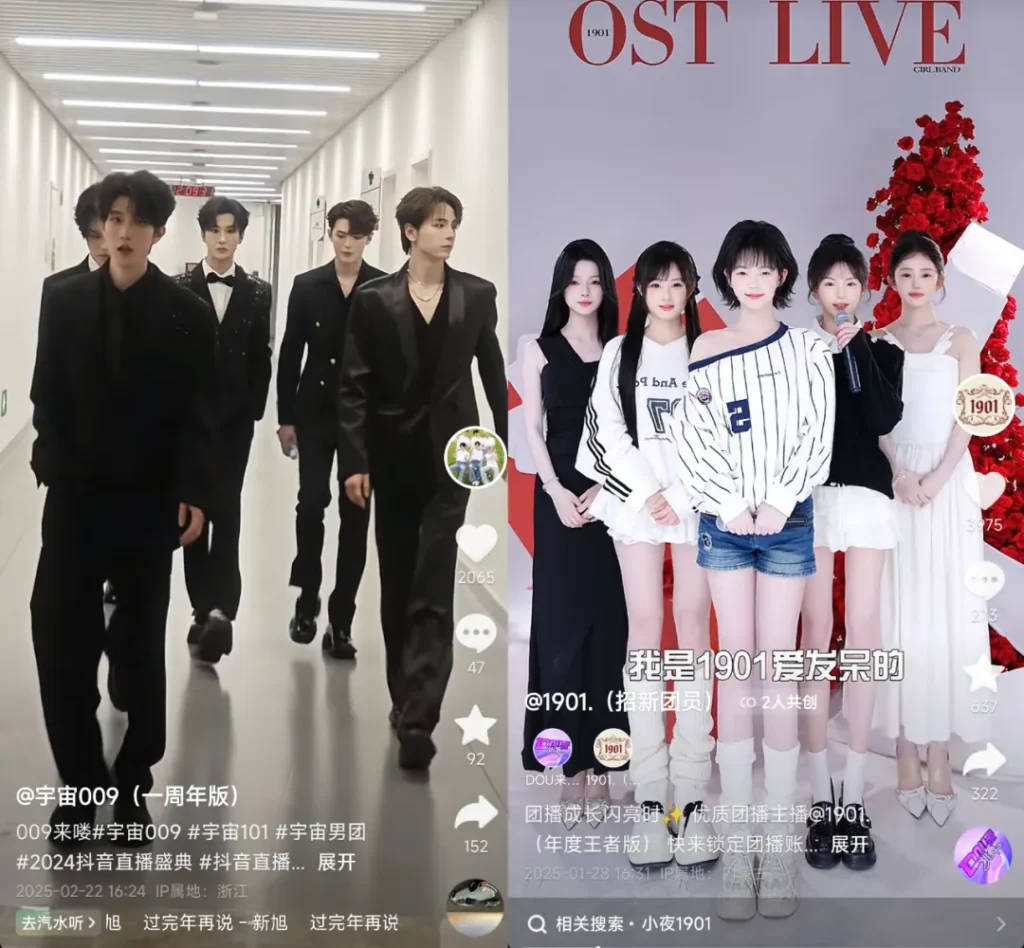
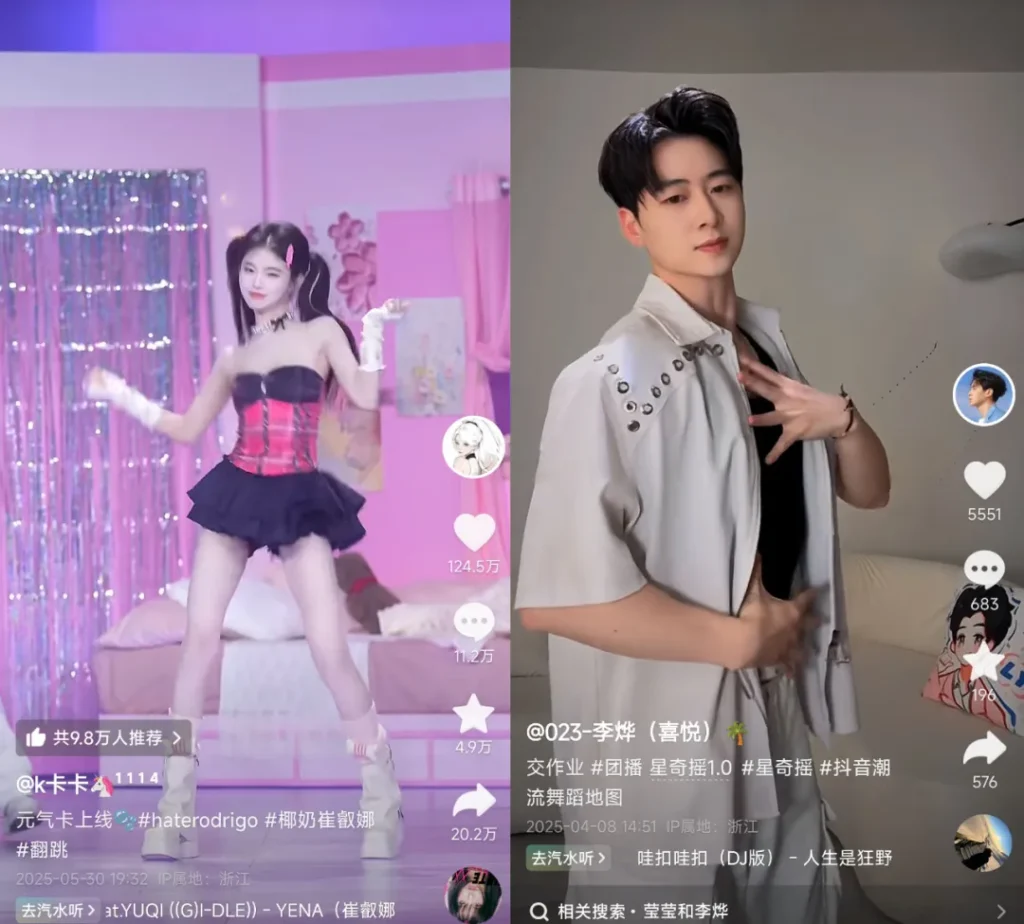
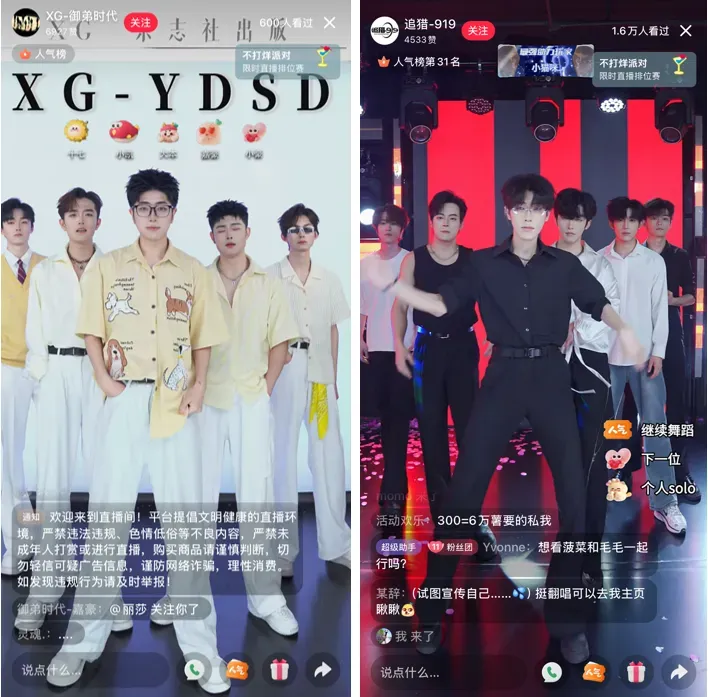
Unlike the flirty content typical of the “low-quality” livestream era, group livestreams take a leaf from the idol playbook, allowing viewers to follow the members’ growth in their careers. For many, it is also a replacement for idol variety shows that were popular a couple of years ago. Viewers support the streamers like they do idols, and the streamers dance and participate like in variety shows. There are also former idols who join group livestreams for the new market. Another big difference is that women are becoming a major demographic consuming group livestream of both boy and girl groups in China. Some pundits believe this is because women have long been the target audience for idol groups, K-pop and related variety shows.
Meanwhile, as competition in the job market becomes more intense, many people see group livestreaming as an opportunity to earn quick money, both for agencies and streamers. However, “earning over 1 million RMB (139,421.40 USD) a month” is not a reality for everyone. Many are still struggling, as the market becomes increasingly saturated. In late June, a hashtag went viral on Douyin, TikTok’s Chinese sister app, called “almost forgot what I used to do since I started group streaming”. From aspiring singers and actors to news anchors, on-screen reporters, and even doctors and nurses, many share old photos of themselves in the workplace, in contrast with how they look today. Hopefully, in this time of economic uncertainty, group livestreams can generate enough work for streamers and provide entertainment for their viewers.




